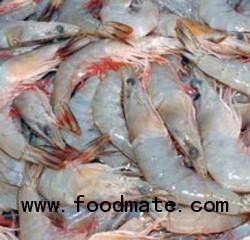Industry insiders said both the demand and prices of local products decreased in the international market because of the ongoing recession.

Moreover, local exporters' dependence on traditional markets is also responsible for lagging behind in the race. Bangladesh's frozen fish export is mainly confined to the EU and the US markets.
The Export Promotion Bureau (EPB) data shows that the sector has been continuously witnessing a negative export growth since April last year.
Export earnings stood at $129.54 million during the first three months of the current fiscal year (FY 13), marking a 30.50 per cent negative growth, compared to the same period of the previous fiscal. The earnings also fell short of the target, set for this July-September period, by 21.92 per cent.
Exporters said the demand for big-sized golda and bagda shrimps declined in the recession-hit EU and US markets, as they have switched to small and low-priced vannamei.
"The global economic meltdown has reduced the demand for the locally-produced golda and bagda shrimps, resulting in a fall in their prices," Khan Habibur Rahman, executive director of Lockpur Group, told the FE Wednesday.
He said their shipment is now destined only to the EU countries, while an insignificant quantity of frozen fish is sent to the US market. Vannamei is gradually replacing local shrimps, he added.
"Earnings from the US market have declined, as we can't compete with the small-sized and low-priced vannamei, the demand for which is incredibly growing there following the recession," said managing director of Amam Sea Food Industries Ltd S Humayun Kabir.
"Prices of local big-sized bagda have declined by 10 per cent in the recent times, which contributes 60 per cent of our total production. The local item is facing a tough competition in terms of production cost."
"Now we have to sell this variety at the similar rates the vannamei is sold. We produce only 200-250 kg of shrimp per hectare, while the vannamei production rate is two to three tonnes per hectare," he explained.
He alleged that there is no initiative from the government to explore new shrimp export markets to reduce the dependence on the traditional ones.
Khan Habibur Rahman said, "Russia can be a potential market for Bangladeshi shrimp exporters. If the market is opened up for all, minimum Tk 2-3 billion can easily be added to the country's total frozen fish earnings."
The Bangladesh Frozen Food Exporters Association (BFFEA) said bureaucratic complexities and dilly-dally of the authorities concerned are posing a threat to losing the Russian market.
"The government should take initiatives to diversify export markets and reduce dependence on a single market," a BFFEA official said.
"Export to the EU marketmight decline in the current fiscal also. We are concerned of losing competitiveness in the global market due to availability of Indian and Vietnamese products," he added.
Export to the US is rather insignificant, while shipment to Japan is almost stopped in the recent times, he said.
"This is the high time we focus on market diversification, and Russia can be the best alternative option," he added.





